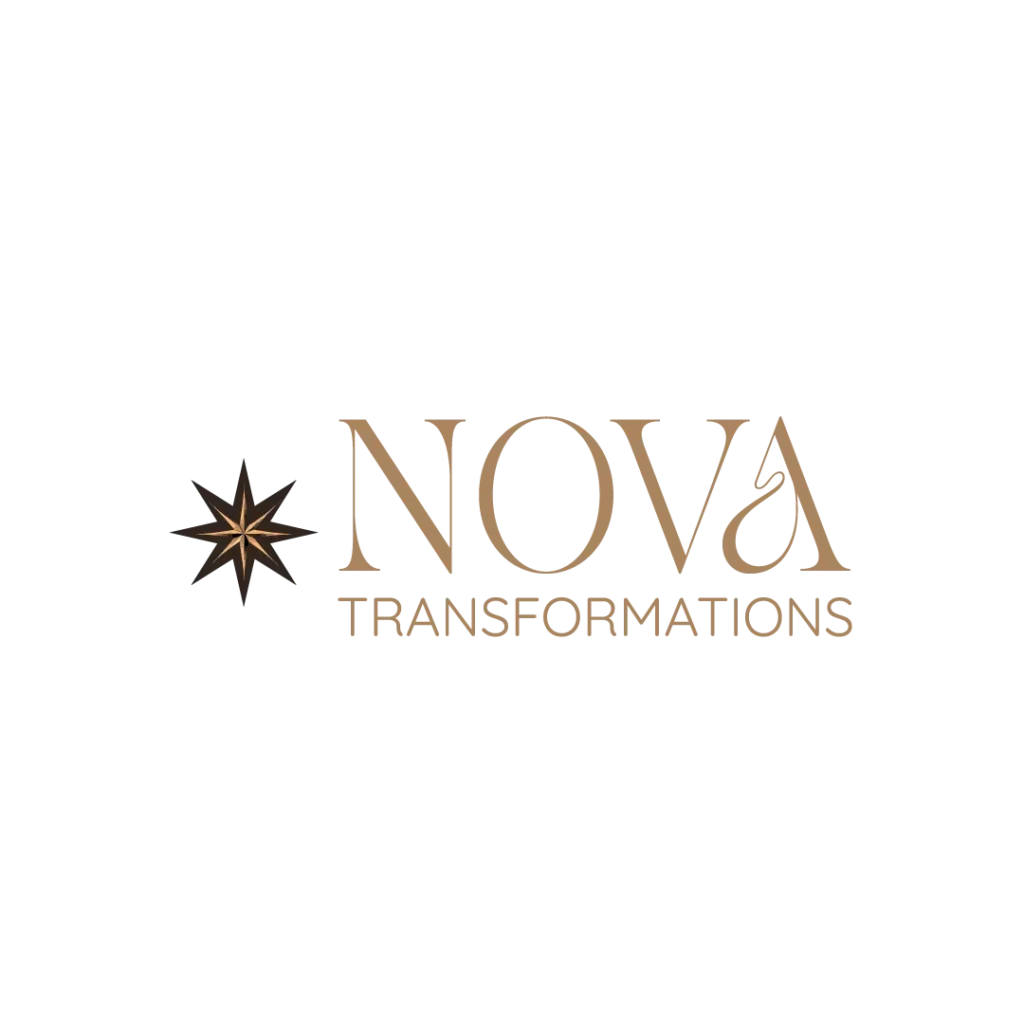The Importance of Nutrition in Rehabilitation
Nutrition is vital in rehabilitation, significantly enhancing recovery for individuals managing various health challenges, including substance addiction. A balanced diet laden with essential nutrients is foundational for promoting healing and improving overall health outcomes. Nutrition groups rehab programs emphasize this crucial connection to foster recovery in those who seek substance abuse treatment.
Role of Dietitians in Recovery
Registered Dietitians (RDs) play a pivotal role in rehabilitation. They develop personalized diet plans that cater to each person’s unique nutritional needs. These plans account for various factors such as medical history, health status, and individual dietary preferences. Dietitians assess patients comprehensively, identifying specific health issues or risks, including malnutrition and dietary restrictions (St. James Rehab).
A tailored dietary strategy is essential in rehab settings. Given that many individuals in recovery may experience heightened nutritional needs, often recommended at 2.0 g/kg/day of protein, dietitians provide guidance on meeting these requirements effectively.
Balancing Macronutrients for Healing
In the rehabilitation context, balancing macronutrients—proteins, fats, and carbohydrates—is crucial. Nutrition groups prioritize this balance alongside vital micronutrients to enhance healing and recovery. Omega-3 fatty acids are particularly beneficial due to their anti-inflammatory properties, aiding in tissue repair and minimizing discomfort.
The following table illustrates the recommended macronutrient distribution for individuals in recovery:
| Macronutrient | Recommended Intake |
|---|---|
| Protein | 2.0 g/kg/day (increased needs during recovery) |
| Fats | 20-35% of total caloric intake |
| Complex Carbohydrates | 45-65% of total caloric intake |
Essential fatty acids, particularly omega-3s, can increase muscle protein synthesis and help mitigate muscle loss in immobilized patients. Approximately 3 to 5 g/kg or 55% of total calories during rehabilitation should consist of complex carbohydrates from whole grains, fruits, vegetables, and dairy.
Dietary strategies that focus on omega-3 fatty acids, vitamins, and antioxidants can enhance cognitive function, stabilize mood, reduce inflammation, and prevent muscle atrophy during decreased physical activity in rehabilitation settings.
Integrating nutrition into your recovery plan is essential for improved physical recovery and overall health, reinforcing the profound impact of nutrition on rehabilitation outcomes. For those seeking treatment, Nova Transformations incorporates these nutritional approaches as part of their comprehensive rehabilitation programs.
Personalized Nutrition Plans in Rehabilitation
Personalized nutrition is a cornerstone of effective rehabilitation, particularly when addressing the specific needs arising from conditions such as substance abuse disorders. Understanding and implementing tailored dietary strategies can have a profound impact on your recovery journey.
Tailored Dietary Strategies
Registered Dietitians (RDs) play a crucial role in developing individualized nutrition plans that cater to your specific needs during rehabilitation. These plans take into account factors such as your medical history, current health status, and dietary preferences, ensuring that you receive optimal nutrition throughout your recovery (St. James Rehab).
The nutritional strategies crafted by dietitians often emphasize the importance of essential nutrients to improve recovery outcomes. Some key dietary components may include:
| Nutrient | Role in Recovery |
|---|---|
| Omega-3 Fatty Acids | Reduces inflammation, improves cognitive function |
| Vitamins (A, C, E) | Supports immune function and promotes healing |
| Antioxidants | Protects cells from damage and enhances recovery |
| Protein | Essential for muscle repair and growth |
Diets typically focus on a balanced intake of these nutrients, which can help stabilize mood, reduce inflammation, and mitigate issues such as muscle atrophy, especially during periods of reduced physical activity during your rehabilitation.
Nutrition for Unique Conditions
The need for a personalized approach is heightened when considering individuals recovering from unique conditions. For instance, if you or a loved one are recovering from substance abuse, dietitians create tailored meal plans that address nutritional deficiencies often seen in such situations.
The recovery process may require higher levels of various nutrients. For example:
- Increased protein intake may be necessary to help rebuild muscle mass and strength, particularly for those who may experience muscle atrophy during detoxification and rehabilitation.
- Omega-3 fatty acids and certain vitamins are emphasized to help improve cognitive function and stabilize moods, both crucial for emotional resilience during recovery.
Ongoing nutritional counseling post-rehabilitation is essential for maintaining your progress and addressing any deficiencies, which helps minimize the risk of relapse. This comprehensive support encourages a balanced diet that promotes a healthier lifestyle long after you complete your treatment (St. James Rehab).
By choosing a facility like Nova Transformations, which emphasizes the significance of personalized nutrition plans through experienced dietitians, you ensure that the unique dietary needs of your recovery will be met, aiding your journey toward lasting wellness.
Transformative Role of Nutrition in Recovery
Supporting Physical Healing
Nutrition plays a transformative role in enhancing recovery outcomes significantly. A well-balanced diet aids in tissue repair, boosts the immune system, and supports overall physical health. Adequate nutritional intake is crucial for individuals recovering from various conditions, including substance abuse. This is particularly important as resolving deficiencies can impede healing progress and mood regulation.
In rehabilitation, the focus should be on delivering essential nutrients that support recovery. Recent research indicates that during recovery from an injury, approximately 3 to 5 grams per kilogram of body weight, or roughly 55% of total calories, should come from complex carbohydrates, which include whole grains, fruits, vegetables, and dairy (NCBI).
| Nutritional Component | Recommended Amount |
|---|---|
| Complex Carbohydrates | 55% of total calories |
| Omega-3 Fatty Acids | 3-5 g/kg of body weight |
| Protein | Adequate amounts according to individual needs |
Good nutrition accelerates tissue repair, reduces pain and fatigue, and enhances overall strength. These aspects can significantly aid in restoring functional independence more quickly, ensuring that individuals can return to their daily activities and responsibilities.
Impact on Mental Well-being
Nutritional strategies emphasizing omega-3 fatty acids, vitamins, and antioxidants can improve cognitive function and stabilize mood, which is particularly critical during the recovery process. These nutrients help reduce inflammation and prevent muscle atrophy, especially during periods of reduced physical activity in rehabilitation settings (StJamesRehab).
Ongoing nutritional counseling post-rehabilitation is vital for maintaining progress. It helps to monitor nutritional status, address deficiencies, and promote a balanced diet, contributing to sustained recovery. These efforts reduce the risk of relapse and encourage a healthier lifestyle beyond the recovery period.
By understanding the transformative role of nutrition, you can make informed decisions on your or your loved one’s recovery journey through programs like Nova Transformations that incorporate these essential dietary strategies into their detox and rehab plans.
Economic Impact of Injury and Rehabilitation
Cost of Injuries in Young Adults
Injuries among young adults, particularly those aged 17 to 44 years, significantly contribute to healthcare costs in the United States. Annually, over $9 billion is spent on injury and rehabilitation in this age group. This makes injuries the leading contributor to medical expenses for young adults (PMC).
The financial burden of injuries is not limited to medical bills; it also includes lost productivity, long-term care, and rehabilitation costs. A snapshot of relevant data is provided in the table below:
| Cost Category | Estimated Annual Cost (USD) |
|---|---|
| Medical Expenses | $9 billion |
| Lost Productivity | Varies |
| Rehabilitation Costs | Varies |
| Total Estimated Costs | Over $9 billion |
In the Netherlands, the cost of sports injuries for elite adolescent athletes alone was estimated at 413 million euros annually.
Benefits of Low-cost Nutrition Strategies
In addressing the economic impact of injuries, implementing low-cost, high-volume nutritional strategies is essential. These strategies can complement existing standard care and significantly benefit individuals undergoing rehabilitation. Research indicates that effective nutritional support can accelerate recovery, improve overall outcomes, and reduce long-term costs of rehabilitation.
The role of specific nutrients, particularly protein, is crucial for individuals recovering from injuries. Adequate protein intake is vital for muscle mass retention, strength recovery, and overall healing. Tailoring protein intake to meet individual needs is essential for maximizing rehabilitative outcomes. Proper nutritional interventions can also minimize excessive healthcare costs related to prolonged recovery times.
By adopting effective nutritional strategies during rehabilitation, individuals can potentially lower their overall treatment costs and improve their recovery journey. For more information about nutrition in rehab scenarios, see our coverage on nutrition groups rehab.
Nutritional Goals in Rehabilitation
During the rehabilitation process, nutritional objectives are critical for effective recovery. Adequate intake of calories and protein plays a pivotal role in promoting healing and overall well-being.
Providing Adequate Calories and Protein
It is essential to provide enough calories and protein during rehabilitation to support various bodily functions. Proper caloric intake aids in wound healing, prevents the loss of lean body mass, and modulates inflammatory and immune responses. It enhances blood glucose control while providing necessary macro- and micronutrients.
A recommended energy intake for individuals undergoing rehabilitation is approximately 25–30 kcal/kg of body weight. This recommendation ensures that energy levels are sufficient to combat potential muscle loss associated with inactivity or injury.
| Nutritional Goal | Recommended Amount |
|---|---|
| Caloric Intake | 25–30 kcal/kg of body weight |
| Protein Intake | 1.2–2.0 g/kg of body weight |
Protein is crucial for maintaining muscle mass and strength during recovery. Whey protein is particularly beneficial because it contains essential amino acids and high leucine content, which effectively stimulates muscle protein synthesis. Tailoring dietary strategies around optimal protein consumption can aid in muscle preservation and prevent fat gain during recovery.
Enhancing Wound Healing and Immune Responses
Good nutrition not only accelerates tissue repair but also reduces pain and fatigue, thus enhancing overall strength for rehabilitation patients. In many cases, a comprehensive dietary plan can help restore functional independence more quickly and improve mental well-being.
Essential fatty acids, especially omega-3 fatty acids, offer notable benefits during recovery. They support muscle protein synthesis, helping to mitigate muscle loss in immobilized patients, which makes them a vital part of a recovery diet. It is suggested that about 3 to 5 g/kg of omega-3 fatty acids is ideal during rehabilitation, with the bulk of calories derived from complex carbohydrates such as whole grains, fruits, vegetables, and dairy products (NCBI).
Understanding and implementing these nutritional goals can greatly influence recovery outcomes, making nutrition groups rehab a critical component of effective rehabilitation strategies. If you are looking for more information on how nutrition impacts recovery, check out our resources on addiction treatment and mental health treatment.
Nutritional Strategies for Athletes in Recovery
When recovering from injuries, athletes must focus on proper nutrition to facilitate healing and maintain strength. Implementing effective nutritional strategies plays a crucial role in this process, particularly with regard to muscle preservation and protein intake.
Muscle Preservation and Strength
Muscle preservation is vital for athletes during recovery, especially following injuries that require immobilization. Muscle atrophy can occur swiftly, with studies indicating a potential 50% decline in muscle protein synthesis during immobilization periods. Such rapid muscle strength loss can significantly impact overall performance; for instance, an 8% loss in quadriceps muscle can lead to a staggering 23% decline in muscle strength.
To combat these effects, tailored dietary strategies should be adopted. This includes ensuring sufficient protein intake, which is essential for stimulating muscle protein synthesis and preventing muscle breakdown. Additionally, incorporating leucine-rich foods can help in offsetting anabolic resistance that often occurs in injured athletes, ultimately aiding in muscle preservation and recovery support.
| Nutritional Strategy | Benefits |
|---|---|
| Consuming adequate protein | Preserves muscle mass, stimulates protein synthesis |
| Incorporating leucine-rich foods | Offsets anabolic resistance, enhances muscle synthesis |
| Adding omega-3 fatty acids | Reduces inflammation, promotes recovery |
Importance of Protein Intake
Protein intake is critical during recovery, as it helps maintain muscle mass and strength. Whey protein is particularly beneficial due to its essential amino acids and high leucine content, which stimulate muscle protein synthesis effectively. Athletes should focus on a diet that includes sufficient protein to prevent fat gain and enhance muscle recovery.
Injured athletes may require a higher protein intake to address the challenges they face, such as anabolic resistance, which reduces their responsiveness to protein ingestion. Supplementing with leucine and ensuring adequate protein intake can support muscle preservation during rehabilitation (NCBI).
| Protein Source | Protein Content (per serving) |
|---|---|
| Whey Protein | 20-25g |
| Chicken Breast | 31g |
| Eggs | 6g per egg |
| Greek Yogurt | 10g per 100g |
In conclusion, focusing on muscle preservation and adequate protein intake is essential for athletes in recovery. With tailored nutritional strategies, athletes can enhance their recovery process and regain their strength efficiently. If you’re interested in more information about nutritional support while recovering, explore our resources on substance abuse comprehensive outpatient treatment or intensive outpatient program options available at Nova Transformations.








